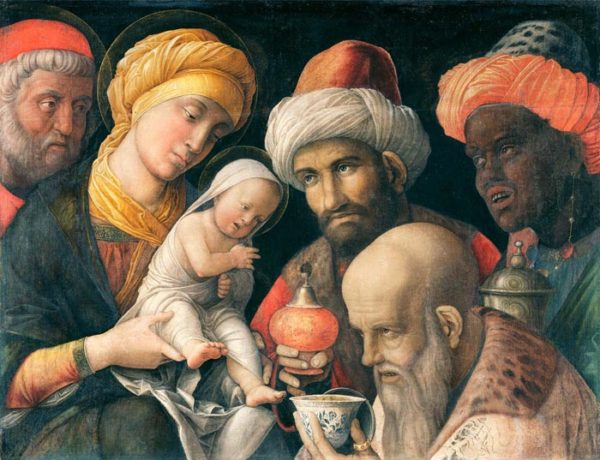Spies, or Something More?

Dear Friends:
Have you ever noticed that we’re comfortable with the magi of the nativity scenes – the dazzling kings whom children dress up as for their pageants. We love to sing about “We Three Kings” of the Orient. But let’s not look past the inescapable conclusion of the Scripture – the Magi were spies. What was their stated intention? Simply, it was to pay the baby Jesus homage. Yet keep in mind they were “from the East” which likely made them vicious enemies of Rome. It’s not unlikely they were agents of their empire, sent to make sense of the unusual sign that they had seen in the sky. Is this baby a threat to them and their political power?
Yes, they were agents of an alien power, and how do we know? They stop first at Herod’s court to introduce themselves and to tell him about their mission. Herod was likely wary of these men, but he knows that he can’t send his own thugs around for various reasons. He conscripts them also to be his own spies too.
The magi are soon overjoyed to find Jesus, but why? Why are they here? Who do they work for? Whose side are they on? They soon enter the house and they see the infant with Mary, his mother. Immediately, they kneel down and pay him homage and offer gifts. And that’s the Good News of the Scripture today. No matter their original intentions or their questionable allegiances, when they meet the Christ child, something happens. When they leave, they do so by another road. On their watch, the magi won’t turn the knife in Jesus side and betray him to his enemies. Even more, imagine when Herod realized they weren’t going to return; he likely threw things around, spitting and stammering. But they choose a different road. No matter whose side they were on, in the end, they choose the side of the child over whom the star shines.
This is our story. When we come here, our intentions are not clear. Why are we in the church? Surely we have a vague appreciation for God. But there are also benefits for us. Being a member of a church can change our social status; there is a business cache. There is a cultural privilege to identifying ourselves as a Christian; there is a political rationale. We come because it makes us feel good or because we have to. We come because if we don’t, people will say negative things about us.
That’s your homework for today – when you leave the Church, ask yourself why you came in the first place. And when you have that experience of the Christ child, maybe the invitation is to take the road less traveled. Whose side are you on?
~Fr. Jamin

